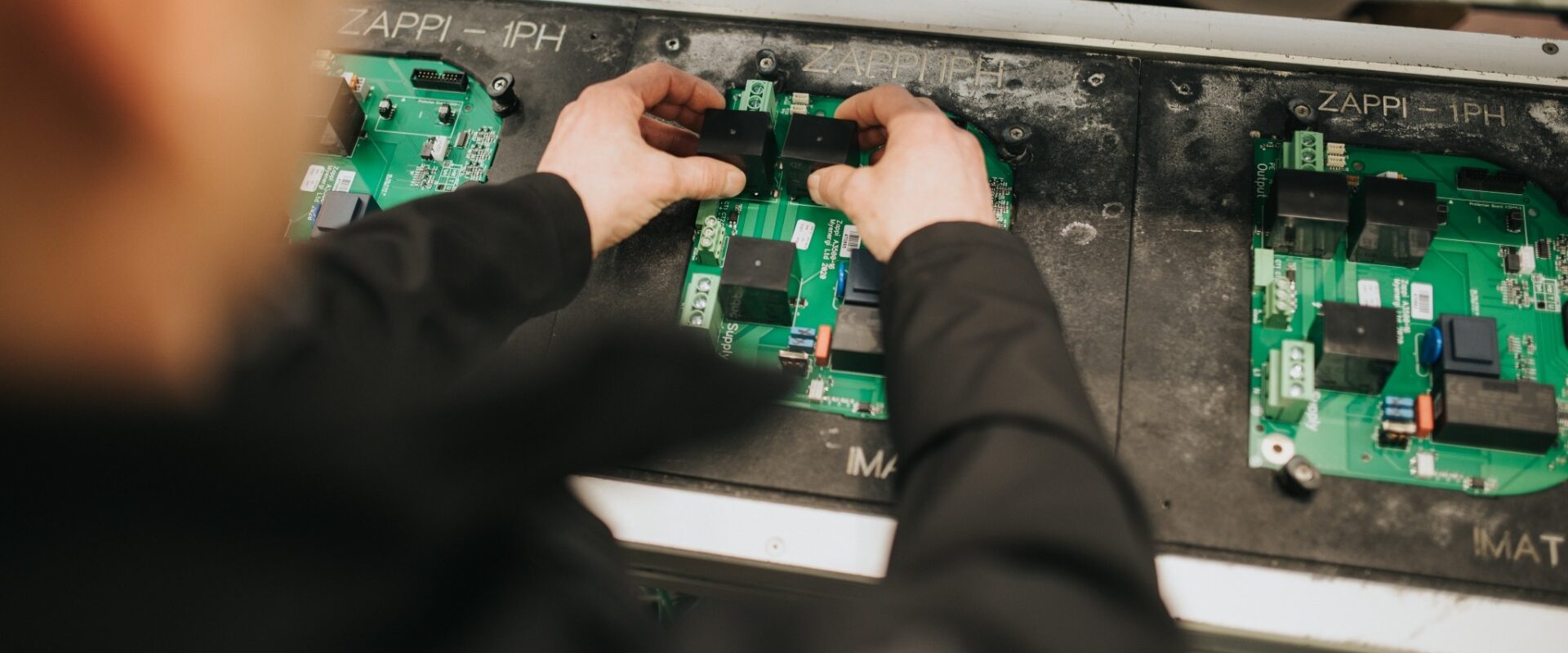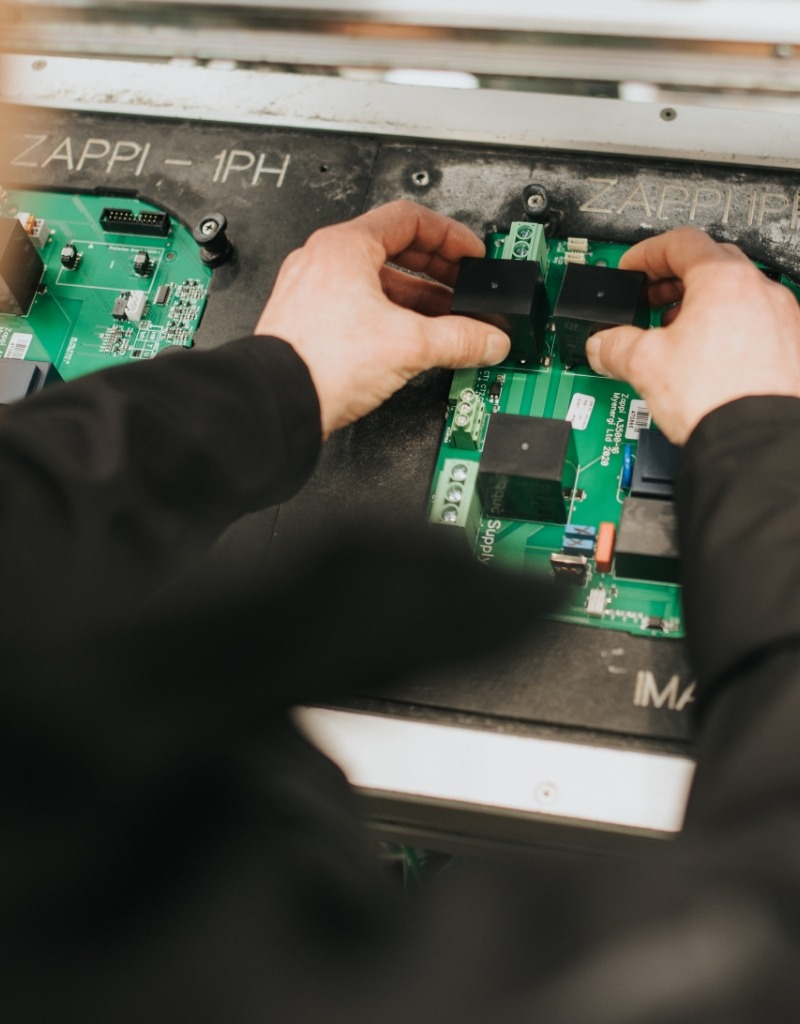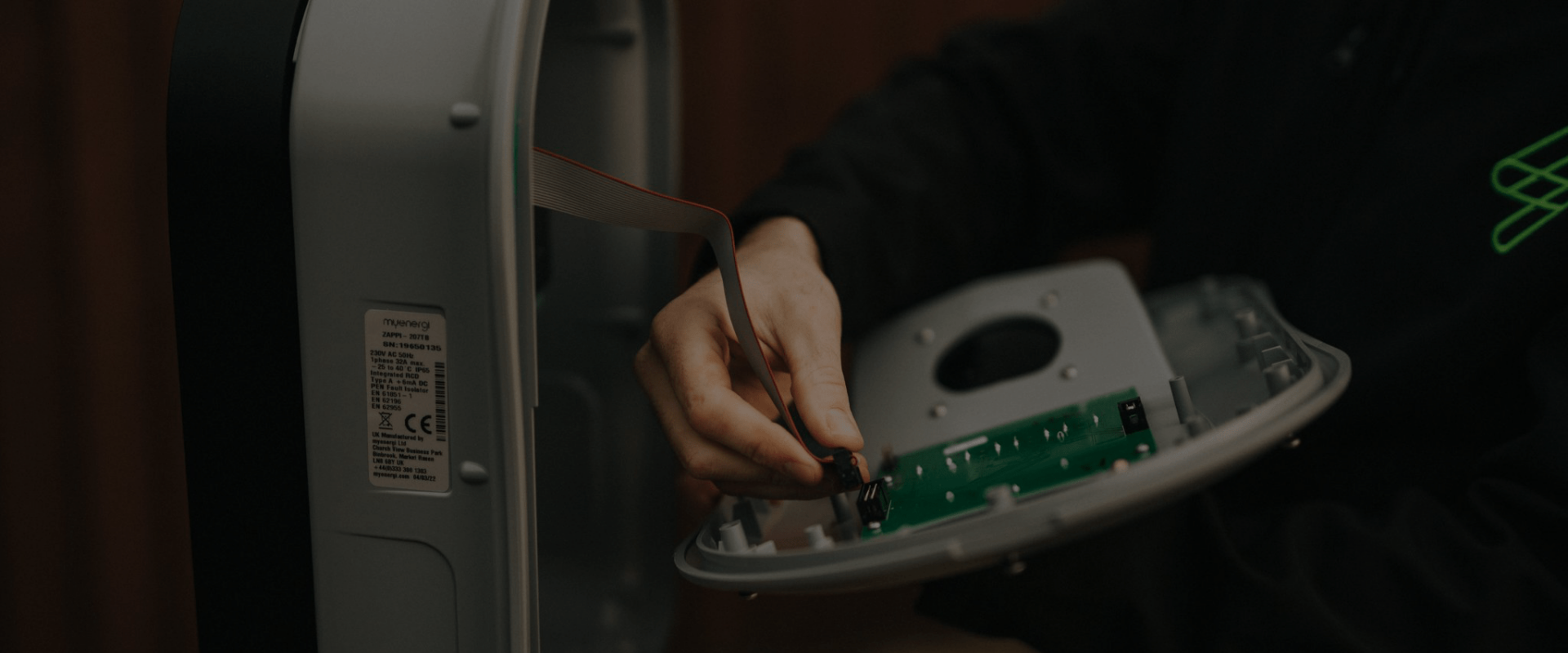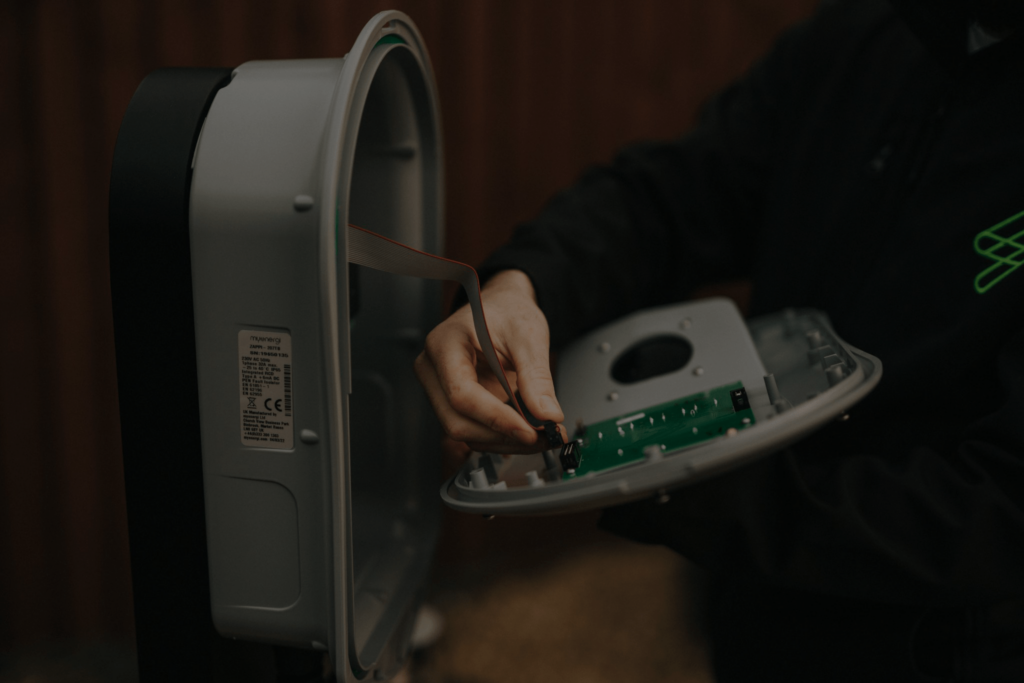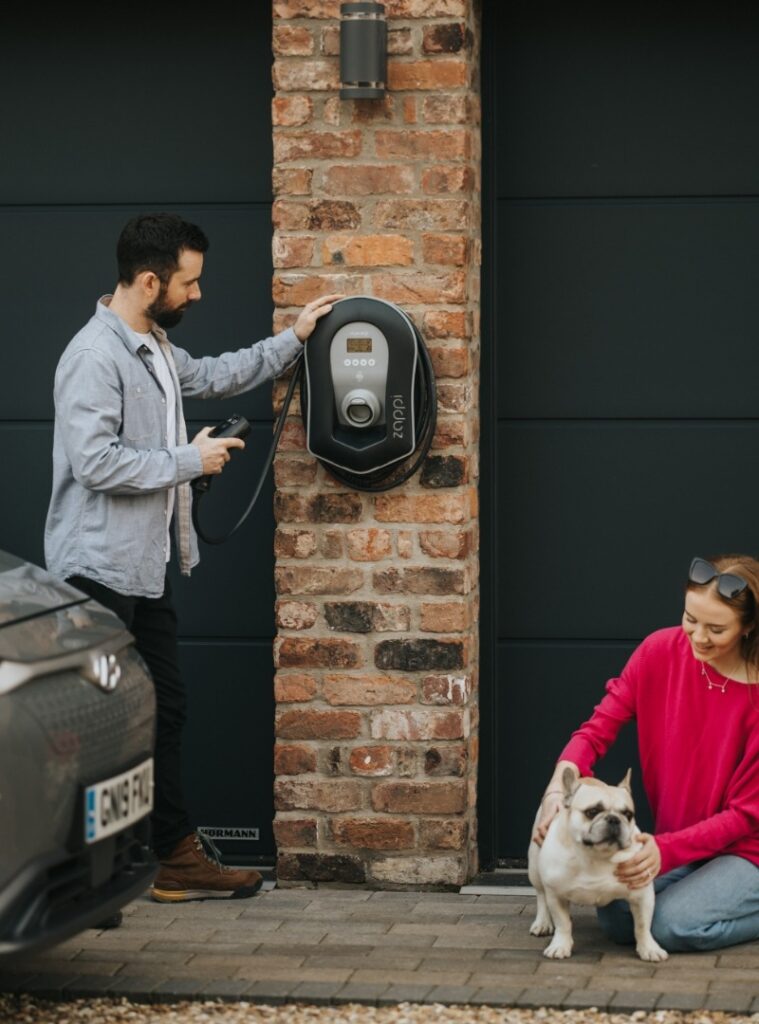
Smart EV charger
Charge your car with power from the grid, solar, or bothThere’s no need for solar panels or a wind energy system to benefit from the zappi charger. By acquiring it now, you’ll be prepared for a greener future. You can now directly purchase your zappi and other myenergi products in Northern Ireland.
zappi sets itself apart as an smart EV charger. It can function as a conventional home vehicle charger, drawing power from the grid. Additionally, it offers alternative charging modes that utilise 100% renewable energy from your own Solar PV system or wind turbine.
By harnessing your power generation, you’ll enhance the Return On Investment (ROI) for both your solar panels and electric vehicle. This means you can charge your EV at home without any additional cost! zappi is not only simple to set up but also user-friendly. Even if you don’t have solar panels installed, zappi will continue to operate as a regular car charger, utilising power from the grid.
Buy zappi direct
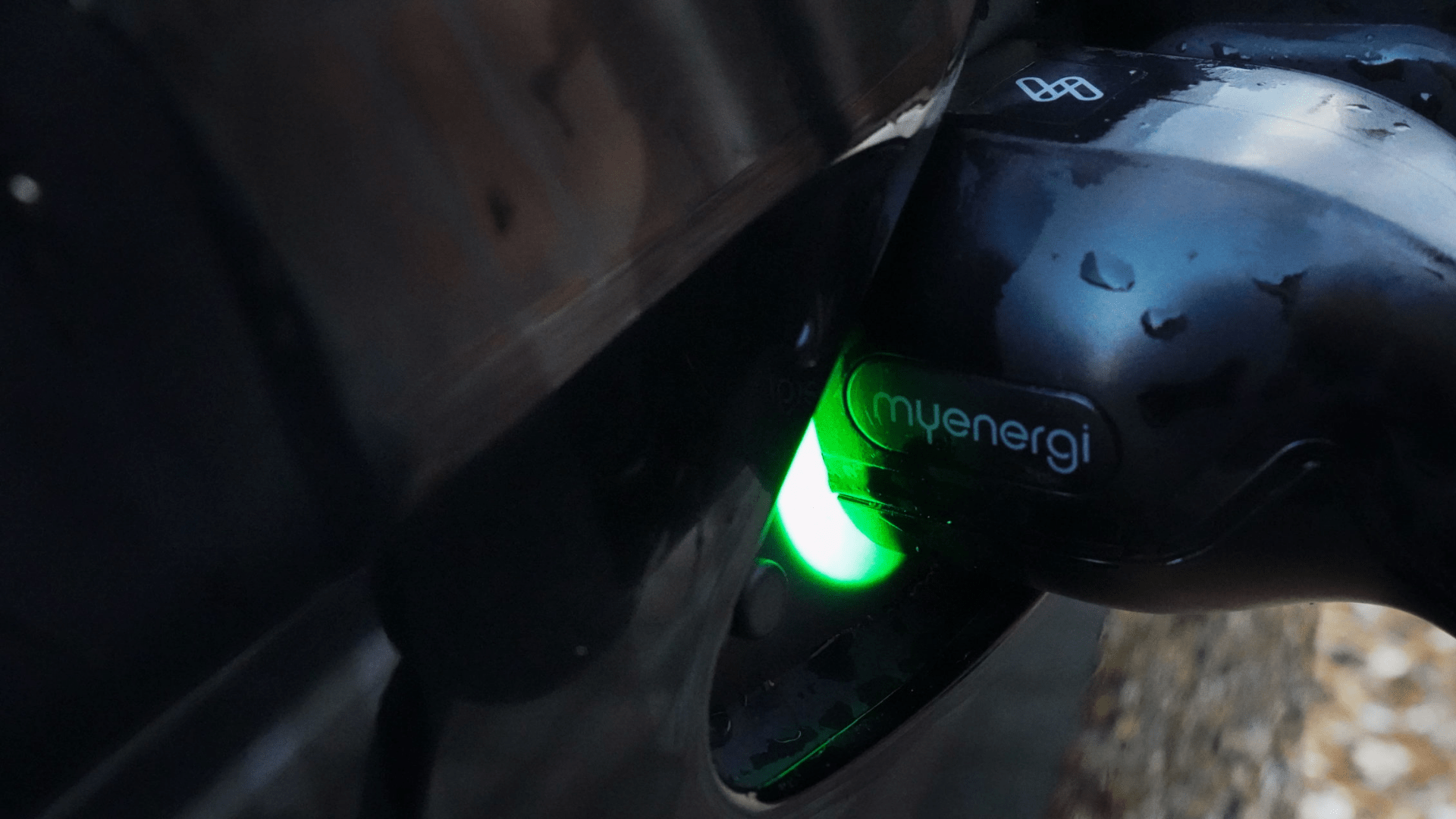
#1 solar car charger
zappi can function without solar panels, as it is capable of deriving 100% of its power from the grid.Be future ready with the zappi home car charger.
Three EV charging modes
zappi provides you with tailor made charging to suit your lifestyle and demands. Whether you need a “fast” charge to get you going in a hurry, or are happy to wait for your charge to take place using 100% renewable energy. zappi gives you the flexibility to charge on your terms.
The eco charge mode is a mixture of both green energy and energy imported from the grid. eco mode minimises the use of grid power, generally taking advantage of cheaper rates overnight, but can also charge using 100% green energy. Essentially giving you the ability to charge up your car for free! The charging power is continuously adjusted in response to changes in generation or power being used elsewhere in the home.
If the surplus generation drops below 1.4kw some power will be drawn from the grid to top it back up.
eco+ charging is very similar to eco charging in that it can utilise power from the grid or your own power source. However the charge power is continuously adjusted in response to changes in generation or power consumption elsewhere in the home. Your electric car charging will pause if there is too much-imported power, continuing only when there is surplus free power available.
In fast mode, your vehicle will be charged at maximum power. This power can come from a renewable energy source or simply from the grid. The cost of charging an electric car also depends on numerous factors including mode and the car itself.
If you don’t have solar panels or wind generation, zappi will charge just like an ordinary Mode 3 charging point.
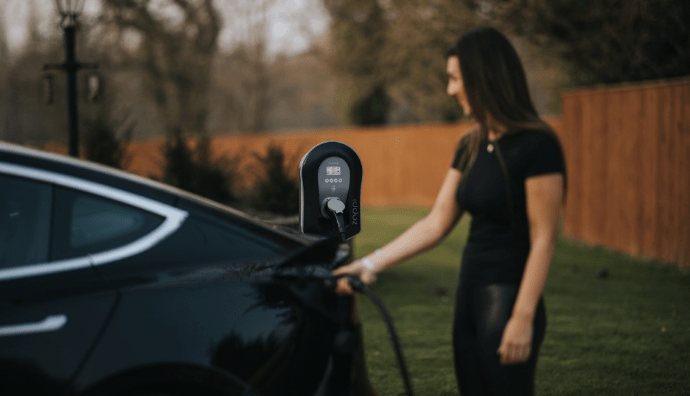
Use your power
zappi utilises your self generated power for EV charging
A solar EV charger works by allowing you to use excess solar to power up your car. Generating solar energy requires solar panels (PV) to be fitted to your home or place of work, but the energy generated through the solar panels is totally free, essentially giving you free miles!
Light energy produced by the sun is called a photon. It is the most basic, fundamental particle of all light. It is these photons in natural daylight that are converted by solar panel cell\s to produce electricity. This small bundle of electromagnetic energy is constantly in motion. Simply put, a solar panel works by allowing photons, or particles of light, to bounce into electrons, setting them free from atoms, generating a flow of electricity.
Our eco smart technology makes intelligent decisions based on your self generated power and the energy tariff you are signed up to. This allows your myenergi devices to optimise for drawing energy from the grid at the lowest possible rate per kWh.
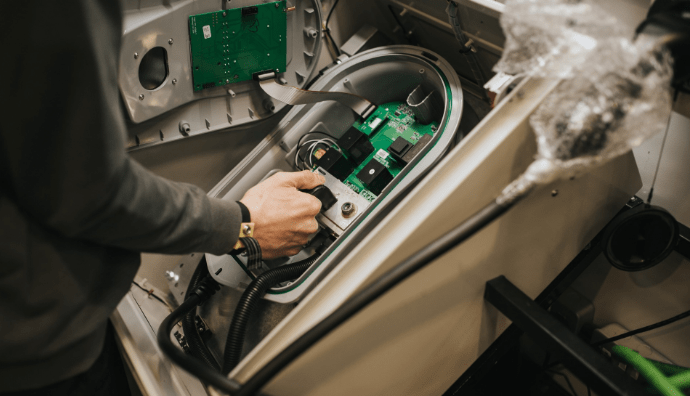
Charging your vehcile safely
Exceeding all safety standards
Safety is of paramount importance. Every myenergi product is engineered to the highest standards possible in terms of energy efficiency, but we place equal importance on safety.
Whilst we adhere to all industry safety standards, we are always looking to provide the safest experience possible for our installers and users. That’s why we were the first to introduce the PEN fault testing ahead of every other manufacturer.
Types of car charger explained
Type 1 electric car charging is a 5-pin design that comes with a tether to prevent it from being pulled out of the charging port. This type of charging point is the dominant variation in Asian, Japanese and American markets. It is less commonly seen in Ireland, UK and mainland Europe. Type 1 chargers only adds about 4 miles of Range Per Hour (RPH), depending on the car’s make and model. So it often referred to as slow or emergency charging in Ireland. A Type 1 charger is commonly misdescribed as the standard 3-pin sockets we have everywhere in Ireland, this is a 3-Pin charger, not a Type 1 electric car charger
The Type 2 car charger is typical of most chargers found in Ireland, UK and mainland Europe. Type 2 models are known as such for their 7-pin design don’t have these latches. Instead to hold them securely to the vehicles, they utilise a locking pin that locates and secures the plug in place. This type of charger will provide your EV with about 25 miles of Range Per Hour (RPH), but can also offer different charging speeds for example eco or fast.
Check out our EV charger FAQ’s
Yes, you can use your zappi EV charger to charge your car without solar. It will simply take power from the grid and charge your car like a conventional electric car charger. With the added benefit of being ready for solar charging if you were to get PV in the future!
Following an initial investment in green technology, going green in the long run does save you on your bills.
Learn moreThis depends on the size of the vehicle battery in kW and the rate of the charge in kWh. Based on an average 54kWh battery, a 50kWh public charger would take around 64 minutes to achieve a full 100% charge, whereas a typical 7kWh home charger would take around 7hrs 42 minutes.
Find out more about the details behind how long it takes to charge an electric car >>
The time it takes to charge your EV using solar panels depends on a number of factors. For example, the number of solar panels in use. On average a single panel will generate around 9kWh so if you have multiple panels, the power generated will increase.
Find out moreThe cost of charging your EV varies depending on a number of factors. If using solar panels, you can charge you EV for free! However if you are paying for an EV charger at a service station for example, they will dictate their own rate depending on the fluctuating costs of energy at the time. At home, you can benefit from cheaper charging if plugging your electric car in at night compared with during the day, and you can also select different charging modes which will change the cost. You can find out more about this and base line calculations in our guide how much does it cost to charge an electric car?
Based on 54kWh, the average cost to fully charge an electric car from empty to full is around €9.10 whilst the average monthly cost to keep an EV charged would be around €36.00. This data is based on fully charging your EV once per week at home. Another advantage is that EV’s are also exempt from paying Road Tax and are significantly cheaper to maintain.
Read our full guide about the cost of charging an electric car >>
Vehicle range is the estimated distance that your vehicle can travel on a single charge. In terms of electric vehicles, this refers to the amount of charge left in the vehicle battery at any given time. This is often displayed on a vehicle dashboard as either a percentage or miles/KM remaining. A vehicle’s actual range depends on many fluctuating factors, such as the environment and your personal driving and charging habits.
See how far your EV can go in our handy guide >>
Our zappi is for sale with two different connectors: Type 1 and Type 2. This means that almost every EV is compatible and can be loaded with zappi.
Explore the ever-growing EV compatible list >>
There are two main types of EV charging station: fast charging for homes, and rapid charging for public chargers. Most home electric car chargers use AC charging: however when rapid charging is required – for instance, at motorway service stations – DC charging is typically used as it is quicker.
We are seeing a rapid increase in the number of charging stations at UK & Irish workplaces – particularly from companies that have electric fleets. Charging at work is becoming an increasingly popular facility – and many businesses are utilising the government’s Workplace Charging Scheme (WCS), which is a voucher-based option that provides financial incentives for installing EV chargers.
Understand more about getting your electric car charger installed >>
 libbi
libbi
